Director: Dante Lam
Cast: Zhang Hanyu, Eddie Peng, Joyce Feng, Sun Chun, Sean Wu, Chen Baoguo, Johnathan Wu, Ken Lo, Carl Ng, Mandy Wei, Yu Dong, Liu Xianda
Running Time: 124 min.
By Paul Bramhall
While Hollywood has long moved on from the flag waving macho heroics that dominated its action cinema in the 80’s, China appears to be going through its own period of nationalistic world saving. In a 12 month period such Rambo-esque adventures as Wu Jing’s Wolf Warriors 2, Tan Bing’s China Salesman, and Dante Lam’s Operation Mekong, all serve their part to show the Chinese military displaying their heroism on foreign shores. Out of the three, there’s little doubt that its Dante Lam’s latest foray into the world of globe-trotting machismo which generated the most excitement, since he already proved capable of handling a similar sprawling action adventure with 2012’s The Viral Factor.
Lam’s return to the loud and boisterous action movie is a welcome one, and arguably a safe zone for the director after the misfire that was his last production, the 2015 cycling drama To the Fore. However despite only being 4 years apart, there’s a significant difference between The Viral Factor and Operation Mekong, in that the former was a Hong Kong production, while Lam’s latest effort is produced by Mainland China. Such differences may seem trivial, but for anyone that’s familiar with the regions output, such trivialities can be significant. Hong Kong productions, aside from the language difference, still tend to do their utmost to skirt around the need to pander to Mainland sensibilities. A Mainland production on the other hand, is essentially guaranteed to embrace the China drum beating that, for many foreign audiences at least, can often come across as overbearing.
Still, with Lam at the helm, there are plenty of reasons to be confident. Lam has been behind many of the productions that critics cite as showing a return to form for Hong Kong action cinema, such as 2008’s Beast Stalker and 2010’s Fire of Conscience. Here he takes on a story that’s based on true events that took place in 2011, when the crew aboard two Chinese cargo ships making their way down the Mekong River were ruthlessly massacred at point blank range. The location of the massacre fell within the area infamously known as the Golden Triangle, so called because of the drug trade that originates there, and itself the setting for numerous Hong Kong action movies (Iron Angels and Black Spot immediately spring to mind). Operation Mekong soon has a military officer, played by Mainland actor Zhang Han-Yu, assigned to the case and sent off to South East Asia, where he rendezvous’ with an undercover operative, played by frequent Lam collaborator Eddie Peng.
Operation Mekong may be based on real events, however its plot feels wafer thin at best, and all too busy to cram in as much location trotting around South East Asia as possible. It’s the kind of movie that has onscreen text appear literally every 5 minutes to tell us which location and country we’re in, an element which clearly had more time spent on it than any attempt at characterization. Both Han-Yu and Peng are given very little to work with, however thankfully Han-Yu, who previously anchored such movies as Assembly and The Taking of Tiger Mountain, has charisma to spare, exuding a Chow Yun Fat kind of cool in every scene he’s in. Peng doesn’t fare so well, and has yet to convince me in regards to being a legitimate actor, following painfully self-aware performances in the likes of Rise of the Legend and Call of Heroes. Here his role doesn’t require much dramatic stretching, so his stoic performance is at least passable.
Nobody is coming to Operation Mekong for the drama though, and as the title suggests, it’s all about the action. Said action comes courtesy of action director Stephen Tung Wai, and stunt choreographer Jack Wong Wai-Leung. Wai-Leung is a protégé of Tung Wai, having assisted on the likes of Extreme Challenge and Bulletproof Monk (and perhaps most randomly, Scooby Doo), developing into an action director in his own right, most recently going solo on the likes of Gangster Payday and Z Storm. Tung Wai should need no introduction for Hong Kong action fans. Having established himself as an action director since his first solo gig on 1981’s Revenge in Hong Kong, he’s also sat in the director’s chair on more than one occasion, including the previously mentioned Extreme Challenge, and the Jet Li vehicle Hitman.
The action style stays largely within the military setting, with brief but effective hand-to-hand combat, plenty of shootouts, and some impressively staged vehicle stunt work. The main issue is that while there’s an (some would likely argue over) abundance of these scenes, there’s no one set piece that particularly stands out. Once Han-Yu and Peng have the authority to go into the South East Asia and do their thing, the pair and their team (which includes a stuttering explosives specialist, a knowing nod to Lau Chau-Sang’s character in Eastern Condors) for the most part roam around like a Chinese version of Team America, causing destruction wherever they go in the name of justice. As an audience, we simply have to accept it, along with the largely stereotypical South East Asian villains, who are villainous because they have tattoos and take drugs.
It’s worth noting that the actor who plays the lead villain, a Thai drug lord, is Pavarit Mongkolpisit, who was the lead in the Pang Brothers 2000 debut, Bangkok Dangerous, in which he played a deaf mute assassin. Mongkolpisit has largely stuck to acting parts in local Thai productions since the movie that put both Danny and Oxide Pang on the map, so it’s nice to see him turn up in a big budget production such as this. Like the other South East Asian characters though, his villain only registers as a cardboard cut-out. For the 2nd time in 2016 (the 1st belonging to Louis Koo in Call of Heroes) we have a villain with a golden gun, and the environment Mongkolpisit operates in is given largely the same treatment. Scenes of child soldiers taking drugs and playing Russian roulette are inserted as filler, usually between his villainous speeches of how he’s not afraid of the Chinese, when it’s easy to feel that such a controversial subject matter should have been given much more weight.
By the finale the same child soldiers are treated largely as bullet fodder with the rest of the nameless drug dealers that operate out of Mongkolpisit’s jungle base, but hey, they’re drug addicts, so it’s ok. If Operation Mekong had been made in the Philippines, it’d likely be a promotional commercial for President Duterte. Arguably the best action scene takes place around an hour in, when an undercover meeting between the Chinese and the drug dealers in a shopping mall sees everyone’s identities being revealed mid-way through their talks. To some degree the scene re-creates the shopping mall shootout from the finale of Tung Wai’s Fox Hunter 20 years prior. What follows involves projectile babies, a sports car on the loose, a few obvious nods to Police Story, and Han-Yu’s heroic dog Bingo throwing down against the bad guys.
It should be noted that Bingo is a highlight of Operation Mekong. The German Shepherd performs Tony Jaa like slides under a bus, leaps into a moving car to attack the driver, and even gets a scene that recreates Owen Wilson’s run through a field of trip wired landmines from Behind Enemy Lines. For dog lovers, forget about that Hollywood A Dog’s Purpose trash, Operation Mekong has all the dog love you need. Like I mentioned, the action just keeps on coming, but like so many recent Chinese productions, CGI rears its ugly head on more than one occasion, rendering some scenes that would be showstoppers in the pre-CGI era as throwaway time fillers here. One scene has Han-Yu and Peng dangling one of the bad guys from a helicopter via some awful green screen work, which lasts a few mere seconds and is over. The same act made up half of the finale for Police Story 3: Supercop, when Jackie Chan famously dangled from a helicopter, here it’s treated as nothing.
All in all Operation Mekong is constructed much like its title, the clinical efficiency with which the Chinese military carry out their duties, also carrying over into the way the movie plays out. This is never more obvious than when a scene is inserted for Han-Yu and Peng to ‘bond’, as they sit alone on a boat discussing ex-wives and dead girlfriends, set to a cheesy rock track of a female voice declaring “We could be heroes.” The only saving grace of the scene is that the song doesn’t appear to be a David Bowie cover. Operation Mekong’s end credits include photos taken from the actual event the story is based on, including the drug lords being arrested and sentenced to death. However considering the bombastic nature of the way it’s been converted for the big screen, something about the inclusion of these shots somehow felt a little off. Saving Mr Wu did the same thing, but the serious nature of Ding Shengs movie made it feel earned, here it doesn’t.
On a lighter note though, no review of Operation Mekong could be considered complete without mentioning Peng’s facial hair. Introduced with a beard and moustache, at one point he tears them off Mission Impossible style, revealing that he wears them in order to keep his real identity hidden. His actual appearance is that of a clean shaven, cropped hair military man. So when he suddenly appears in the finale, which involves no need for any disguise, with a moustache straight from a 70’s adult movie, it’s both bewildering and laugh inducing. Did he grow it especially for the shootout, or felt that a fake moustache would be the perfect accompaniment to an action finale? It’s a question that’ll never be answered, and really it doesn’t need to be. Operation Mekong is undemanding big budget entertainment, and that’s all it wants to be, but from Dante Lam, we can be forgiven for wanting more.
Paul Bramhall’s Rating: 6/10


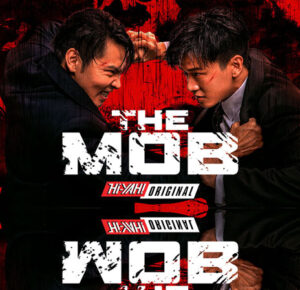

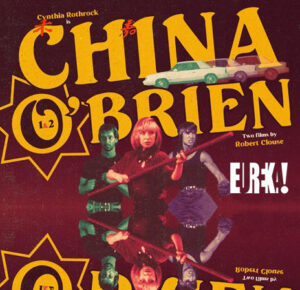
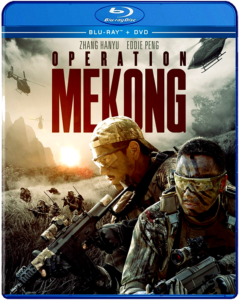

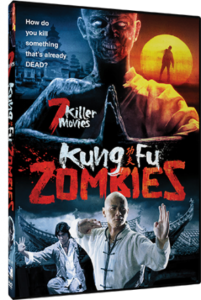
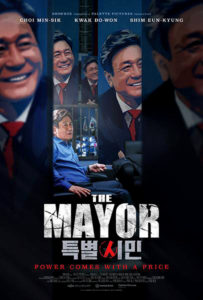
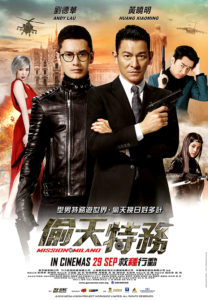
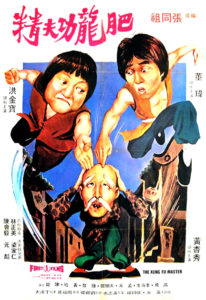
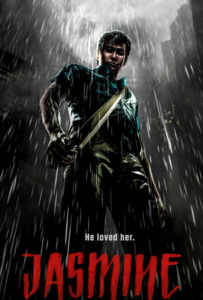
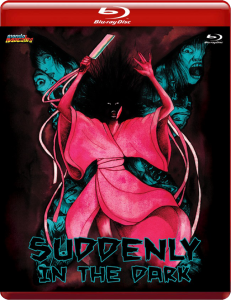
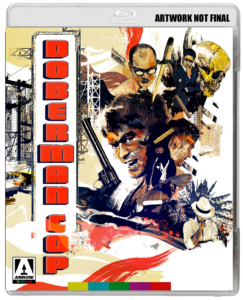
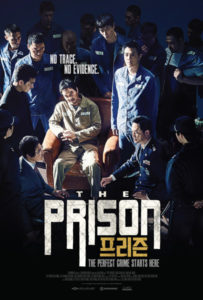

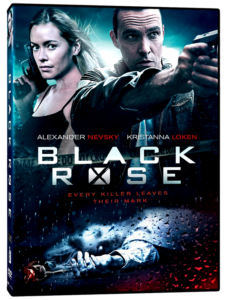
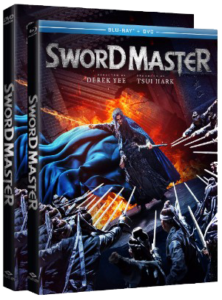
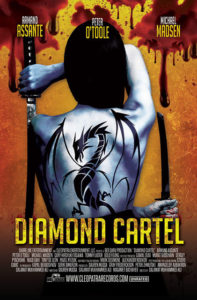



4 Comments